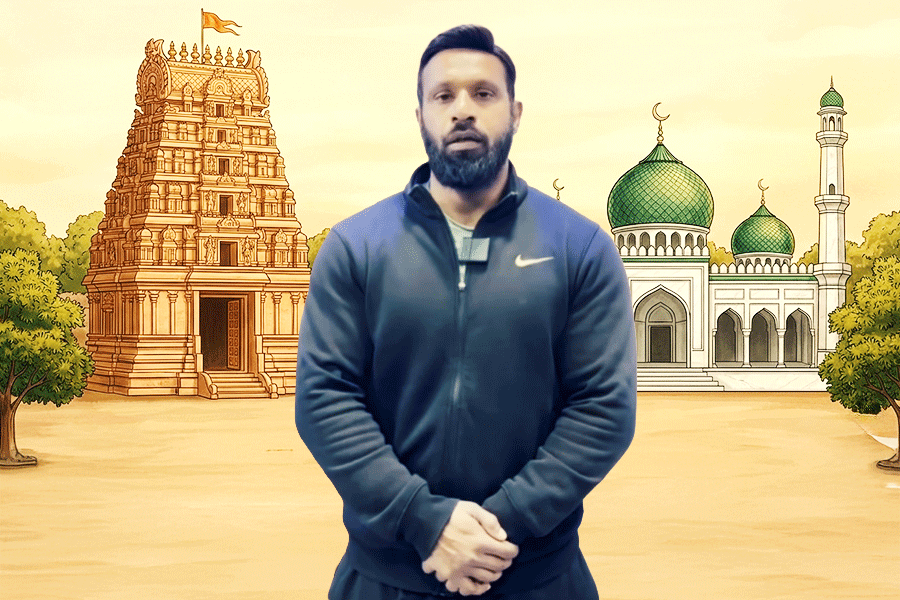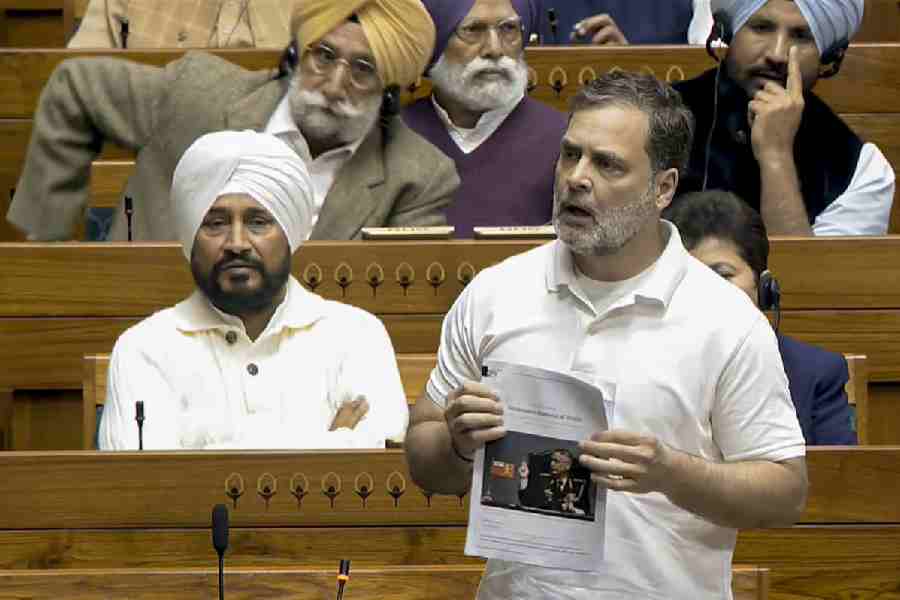
As someone who's been away from India for almost the entire span of her adult life so far, I am rather out of touch with Indian politics. So I was surprised when, shortly after I moved back a couple of months ago, I learned about what I'll call the Sanskrit controversy.
The current government (I was assured by news channels and journalist acquaintances) was aggressively pushing Sanskrit on schoolchildren, at least on those studying in Central schools. Critics saw this as a militant measure that savoured of Hindutva. They also seemed to imply that studying Sanskrit was a huge step back into the dark ages. How could a country with an eye on the future immure itself in memories of a glorious past? Clearly, anyone who was too interested in Sanskrit must be a religious fanatic, or be motivated by political gain.
Sipping coffee and following the debate, I was reminded of my first brush with Sanskrit. The days when my mom would make lunchtime conversation in Sanskrit to make a 'dead' language come alive. The joy of learning a new language which made beautiful grammatical sense and to which I could trace back the roots of my more extensive Bengali and Hindi vocabulary. The surprise of discovering, when I was older, that Sanskrit had a rich non-religious literature, contrary to its conventional image of being a language only of interest to priests and astrologers. A literature in which rakes, beautiful princesses, magicians, unlucky gamblers, wily politicians, and fearsome pirates abound. A language whose long compound words rolled over my tongue like music. Poetry which came alive, whether describing a mood, a season, a lost love.
Being the voracious reader that I was, I now had a much stronger incentive to learn Sanskrit. Armed with a ginormous Sanskrit to English dictionary, which could easily inflict great damage if aimed accurately, I set out to conquer the world of Sanskrit literature. I felt like a gourmet in a paradise of delectable cuisine. My love of the language persisted into my adult life; I still read it whenever I can. It brings me great pleasure and enriches my life.
Given my experiences, I found it very difficult to fathom why this beautiful language should be equated with a particular religion, let alone with religious fanaticism. When a language has contributed so much in the way of literature, arguing that it is irrelevant amounts to saying that great literature has no value. Sanskrit is also unique because of its place in history and its value to historians. Of course, some question the value of history itself, but most would agree that it is vital to understand how a people and a society evolved. Sanskrit helps us capture and visualize this evolution vividly. Why is Sanskrit then not equated with literature and history, instead of with religion?
Let's forget about Sanskrit non-religious literature for a while and think of the body of writings which became associated with Hindu scripture. For a long time, I assumed that, say, the Vedas, simply contained rituals of worship, and avoided reading them because of a lack of interest. However, I then came across several Western scholars' translations and selections from Rigvedic verses. I got a completely different picture of a robust, curious people, who loved nature, were highly poetic and imaginative, and intelligent enough to broach questions, such as, did god create man or did man create the gods? The verses gave me a glimpse of a society which was far removed from the conservative patriarchal character that our civilization assumed in later times. A society where women were free to choose their own partners, widows were discouraged from immersing themselves in grief and were told to celebrate life instead, and remarry if they wanted to. One in which the caste system hadn't become an immutable fixture, where a man, his father, and mother could all have different professions. A rather open-minded and non-judgmental society, where people preferred to enjoy life while expressing their creativity, rather than worry about their neighbours' morals. A completely non-religious person could find aspects of the Vedas fascinating because of the sketch of society they portrayed, or for their poetry; the Upanishads, similarly, would appeal to philosophers of any persuasion.
Sanskrit as a whole is not really Hindu-specific; a lot of early Buddhist literature, for instance, was written in Sanskrit, including the most famous work on the Buddha's life, the Buddhacarita of Ashvaghosha. Sanskrit literature doesn't discuss Christianity or Islam, because it flourished in the era before these religions came into being, and certainly before they became widespread in the Indian subcontinent. However, this in no way detracts from the fact that it represents an integral part of our roots and showcases some of the most creative work of our ancestors.
It took foreign, and non-Hindu, scholars to rediscover and make famous the forgotten gems of Sanskrit literature. Perhaps it is time Indian intellectuals began questioning why they could not approach this language with the same spirit of inquiry and interest, particularly when the civilization that is so vividly portrayed in this literature is their own.










